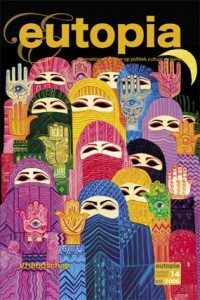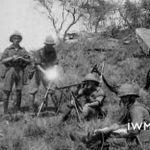Eutopia Institute of Ideas ~ On Middle East, Diversity & Democracy
No Comments yet Developing and challenging new ideas on democracy, middle east, religion and transnational citizenship related to art and politics by multi-media works, (e-)print publishing and related e-magazines and by organizing public and professional meetings.
Developing and challenging new ideas on democracy, middle east, religion and transnational citizenship related to art and politics by multi-media works, (e-)print publishing and related e-magazines and by organizing public and professional meetings.
Eutopia concentrates on a variety of political and cultural issues, including the dialog between the Middle East and the West and developments linked to multiculturalism and the Muslim community in the Europe. Its global perspective is crucial.
For its activities Eutopia draws on an extensive network of freelancers, both at home and abroad, including philosophers, scientists, writers, journalists, artists etc. Eutopia’s good reputation is in fact partly based on its extensive network of contributors.
Eutopia is geared in particular – but not exclusively – towards dialog between North and South, as well as between Europe and the Islamic world. In addition, Eutopia aims to foster a concern for identity and intellectual development among young (migrant) individuals and to raise the quality of their input in European debates on social, cultural and political issues.
Eutopia concentrates on three core activities:
Eutopia E- Magazine: an international window on politics, culture and art.
Eutopia Live: lectures and workshops by and with artists and intellectuals; events and discussions about popular culture, film, literature and music.
Eutopia Academy: international exchange, conferences, networking and consultancy for cultural institutions.
Eutopia’s history and objectives
Eutopia, based in Amsterdam, was set up in 2002 by the sociologists Farhad Golyardi and Shervin Nekuee. Both Eutopia Magazine, of which so far twelve issues have appeared, and the Eutopia Live lectures and seminars have meanwhile found a niche of their own in Dutch cultural life. These activities are realized in collaboration with a great variety of local and nationwide institutions, including De Balie, De Unie, University of Amsterdam, Erasmus University Rotterdam, ISIM, Forum, Hivos, and the city of Amsterdam and the city of Rotterdam.
In general, Eutopia pursues closer collaboration with universities, governmental agencies and cultural institutions and foundations. Moreover, in the past few years, Eutopia has set up an extensive international network of scholars, authors, thinkers and artists in diaspora, many of whom are refugees. They provide major contributions to global intercultural dialogs and the formulation of new views about the dynamic of culture, identity and politics.
Eutopia aspires to develop into a more comprehensive interdisciplinary platform or institute that both nationally and internationally stimulates intercultural dialog in the areas of politics, science, culture and art. As such it fully follows in the prominent Dutch cultural tradition of politics and religious tolerance, which has spawned great thinkers such as Spinoza and Erasmus.
Eutopia is committed to promoting the debate on multicultural affairs in the Netherlands from a European and international perspective. What is the position of the Netherlands with respect to other European and immigration countries? Which social or cultural developments elsewhere have particular relevance for the Netherlands as an evolving multicultural society?
Go to: https://eutopiainstitute.org
You May Also Like
Comments
Leave a Reply







